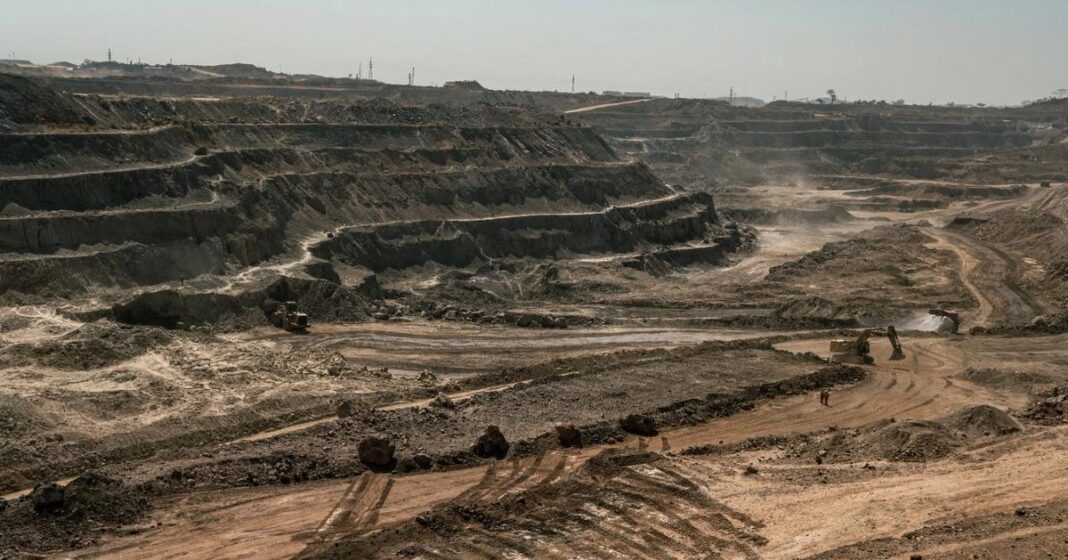The Formation of an African Coalition on Mineral Resources
The African Union (AU) recently announced an ambitious plan to establish a coalition of mineral-producing nations. This initiative comes in the wake of the second Africa Climate Summit and aims to strengthen regional alliances as global attention shifts toward harnessing Africa’s abundant natural resources. The AU’s coalition is envisioned as a “vehicle for harnessing Africa’s vast mineral wealth for climate-resilient development,” highlighting a dual focus on economic growth and environmental sustainability.
Context: The Global Race for Minerals
Africa is endowed with a wealth of mineral resources, including critical materials like cobalt, lithium, and copper, essential for the production of batteries and green technologies. As the world transitions towards sustainable energy solutions, the demand for these minerals has surged. Countries around the globe are eager to secure access to Africa’s resources, positioning the continent as a pivotal player in the global minerals market.
China leads the pack with significant investments in African mineral assets, often establishing partnerships that facilitate resource extraction while providing infrastructure development in return. The vast capital flowing from China has brought both opportunities and challenges for African nations, laying the groundwork for the AU’s coalition.
The Role of the United States
While China has enjoyed a head start in developing ties with African nations, the United States aims to close that gap. The Biden administration has signaled a more strategic approach to engaging with Africa, particularly in the mineral sector. This shift was illustrated by engagement in peace negotiations between the Democratic Republic of Congo (DRC) and Rwanda, wherein access to minerals has taken center stage.
Recent drafts of economic frameworks between these two countries reveal plans to overhaul their mineral supply chains, demonstrating a clear intent to attract American investment. By embedding its companies more deeply within African mineral sectors, the U.S. hopes to secure essential resources while also fostering stability in the region.
The Significance of the Coalition
The proposed coalition of mineral-producing nations will serve multiple purposes. First, it is aimed at ensuring that African countries can collectively leverage their mineral wealth and negotiate better terms with foreign investors. Pooling resources and expertise can help smaller nations negotiate from a position of strength, potentially leading to fairer contracts and greater economic benefits.
Moreover, the coalition could act as a platform for sharing best practices in sustainable mining, technology transfer, and environmental protection. By emphasizing climate-resilient development, the AU is reminding member states that responsible management of resources is essential, not just for economic gain but for the well-being of future generations.
Addressing Environmental Concerns
Mining has historically posed environmental risks, leading to significant ecological degradation. As new partnerships form, there is an increasing recognition of the need for sustainable practices. The AU’s focus on climate resilience indicates an opportunity to pioneer mining strategies that not only minimize environmental impact but also contribute to the fight against climate change.
This dual approach to development and environmental stewardship could serve as a blueprint for other regions, pushing back against the traditional model of resource extraction that often neglects ecological considerations.
The Future of Africa’s Mineral Resources
The establishment of this coalition could set the stage for a transformative shift in how Africa engages with the global economy. By capitalizing on its mineral wealth in a responsible and united manner, African nations can enhance economic independence while addressing pressing global issues such as climate change.
As countries and investors around the world vie for African minerals, the AU’s coalition represents a proactive step towards ensuring that African nations are not mere suppliers but active players in the global minerals market. This initiative could ultimately reshape the narrative surrounding Africa’s relationship with its resources, highlighting a commitment to collective prosperity and environmental responsibility.



